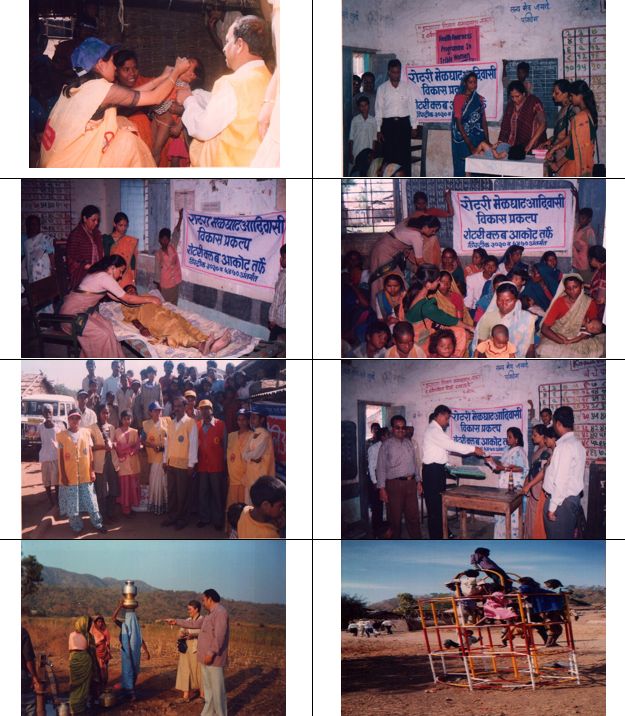3-H MELGHAT
PROJECT
INTRODUCTION AND
HISTORY
The Sunrise Rotary Club of Glenwood Springs is
proud to be part of the Melghat project. The Melghat Tribal area
is located in the north-central part of Maharashtra State (a few
hundred miles east of Mumbai). The area contains about 150 Kurku
tribal villages and came to the attention of local Rotarians due
to the high rate of malnutrition and child mortality among
village children. Our District (D-5470) first became interested
in the project when Past District Governor Burnie Zercher and
wife Pam visited the region back in 1997.
It was their enthusiasm and passion for the project that
ultimately led to District support as well as support from four
individual Rotary Clubs in Colorado. After Burnie "lit the
fire," we began work immediately to complete paperwork for a
Discovery Grant that would fund feasibility work in the Melghat
region. This was approved in August of 1998. During the next two
years, the Rotarians and volunteers of District 3030 completed
surveys, assessed needs and put together a plan that would
appropriately utilize Rotary funds and volunteer labor to help
the Korkoo Indians of the Melghat region. All this hard work
finally paid off when Rotary International released its first
payment toward the Melghat project on December 11, 2000.
Rotarians in both Districts celebrated this well-earned
milestone.
In March of 2001, Rotarian Jack Thomas (of Colorado Springs) had
the pleasure of visiting our partners in District 3030. Jack had
an excellent visit and felt he was able to make a solid
contribution to the project. When he returned home he made
several presentations to various Rotary Clubs - spreading the
news about the progress of the project as well as describing the
dedication and hard work of the Rotarians in District 3030.
In December of 2001, Rotarian Peter Jeschofnig and his wife
Linda (of Glenwood Springs) were the second visitors from D-5470
to the Melghat area. Peter & Linda visited 11 of the 14
villages, and were most impressed with the progress made by
D-3030 Rotarians in the first year of the project. The most
obvious results are improved nutrition of village children,
improved water supply, improved education for both children and
adults, vocational training, and improved general health due to
frequent health check-ups. Rotarians of D-3030 are continuing to
do exemplary work in the Melghat area, especially if one
considers that some of these villages are 60 miles from the
nearest city, necessitating driving times of 3 hours each way.

